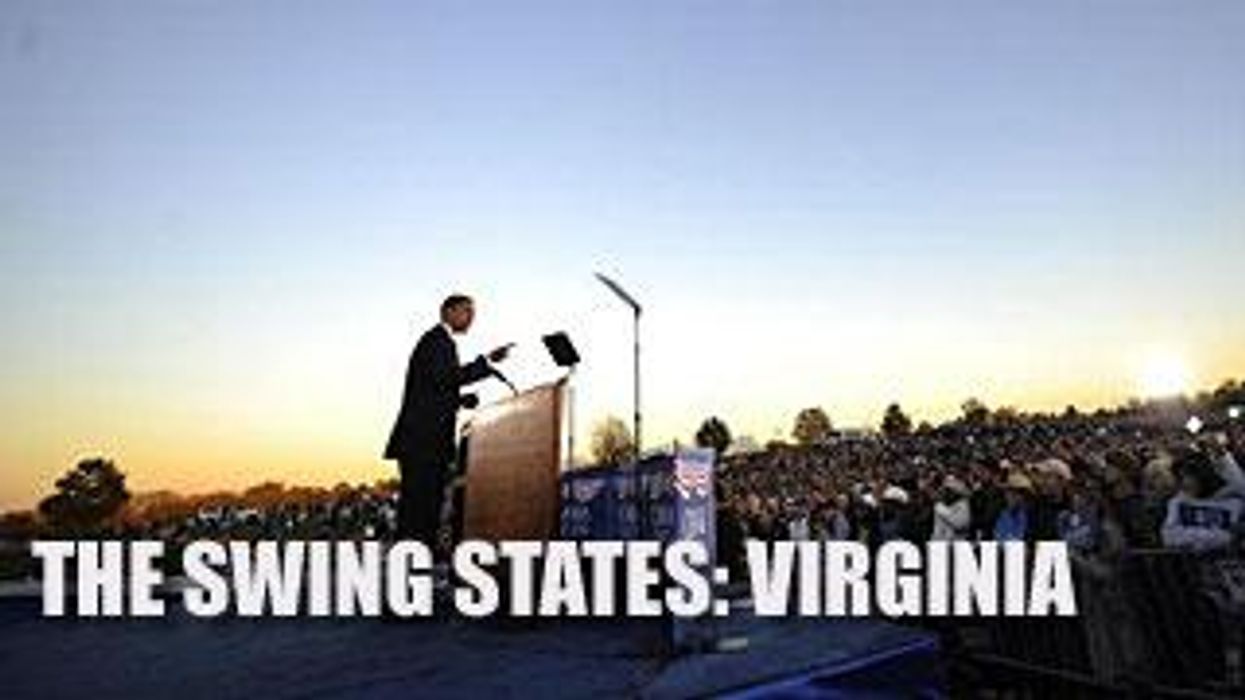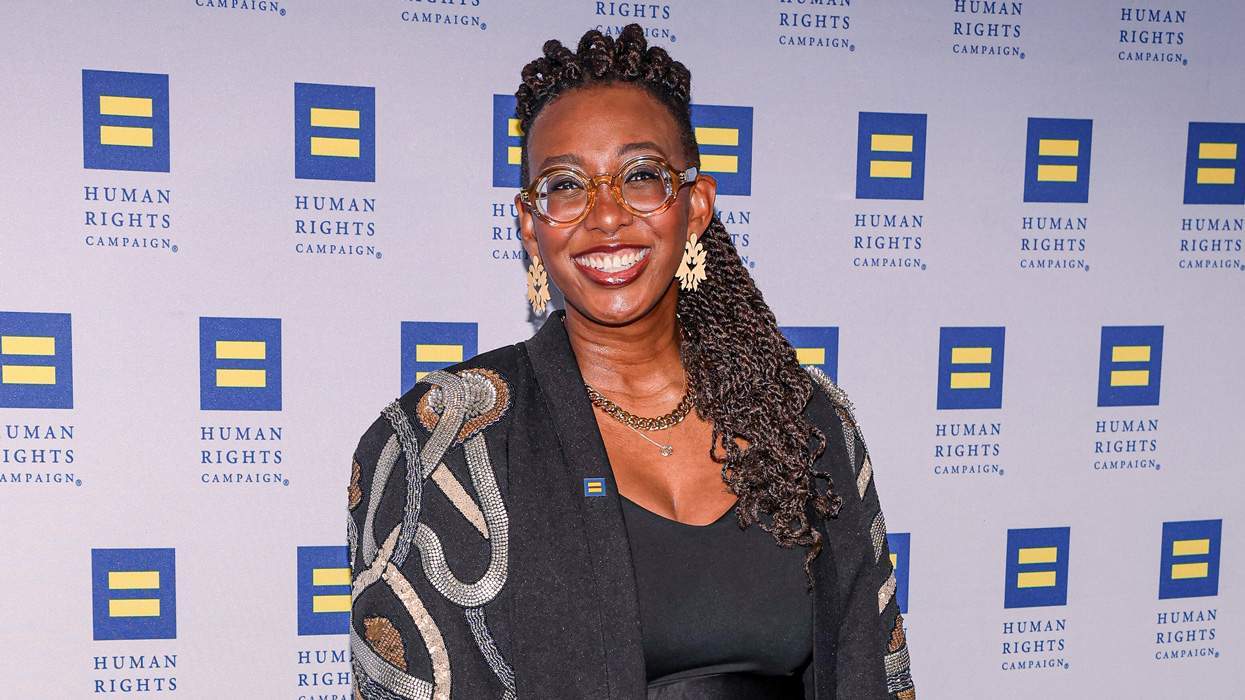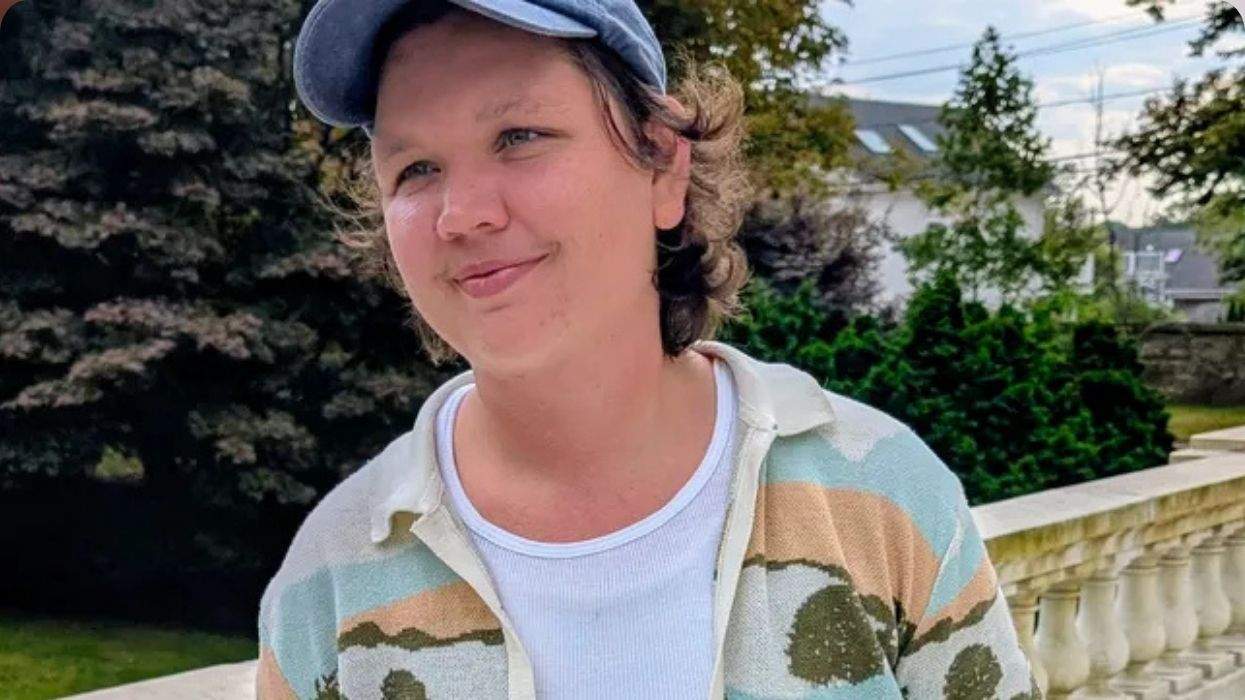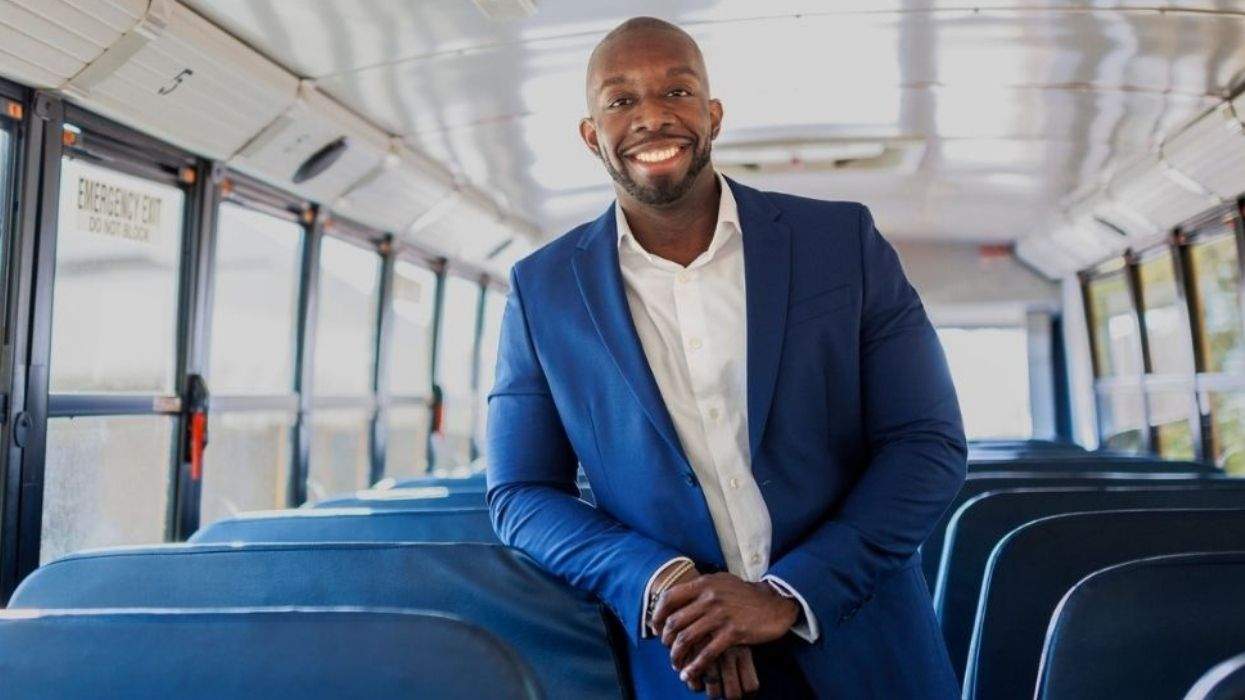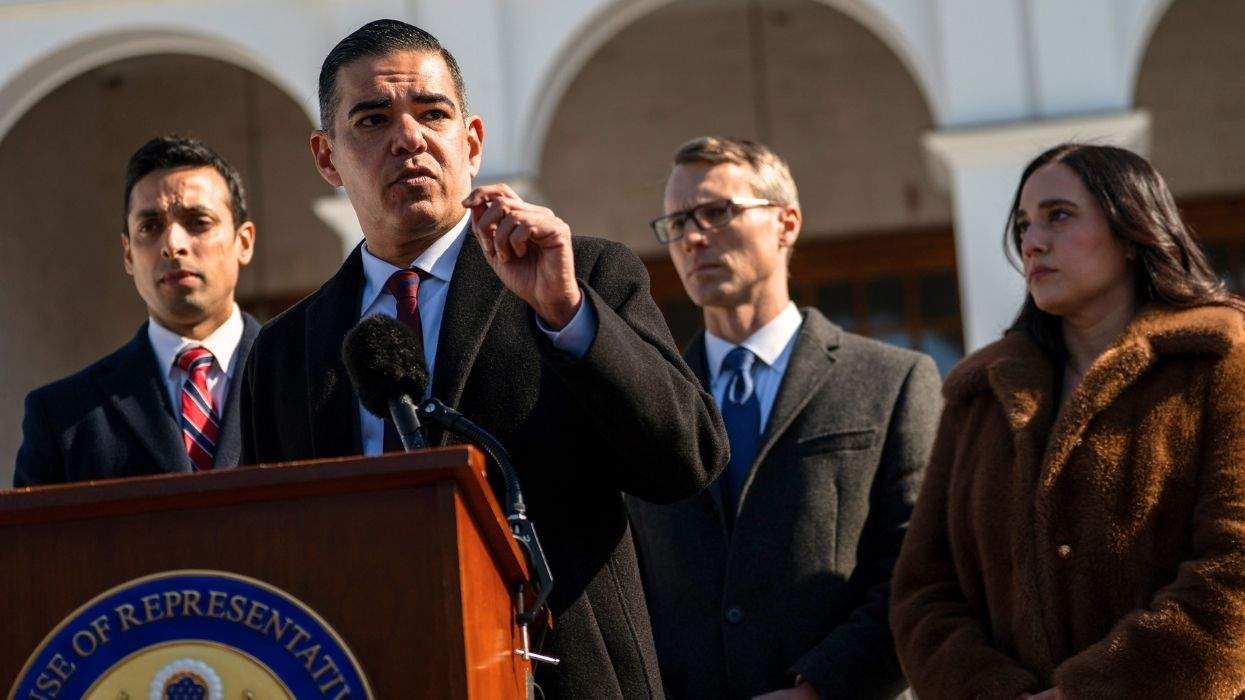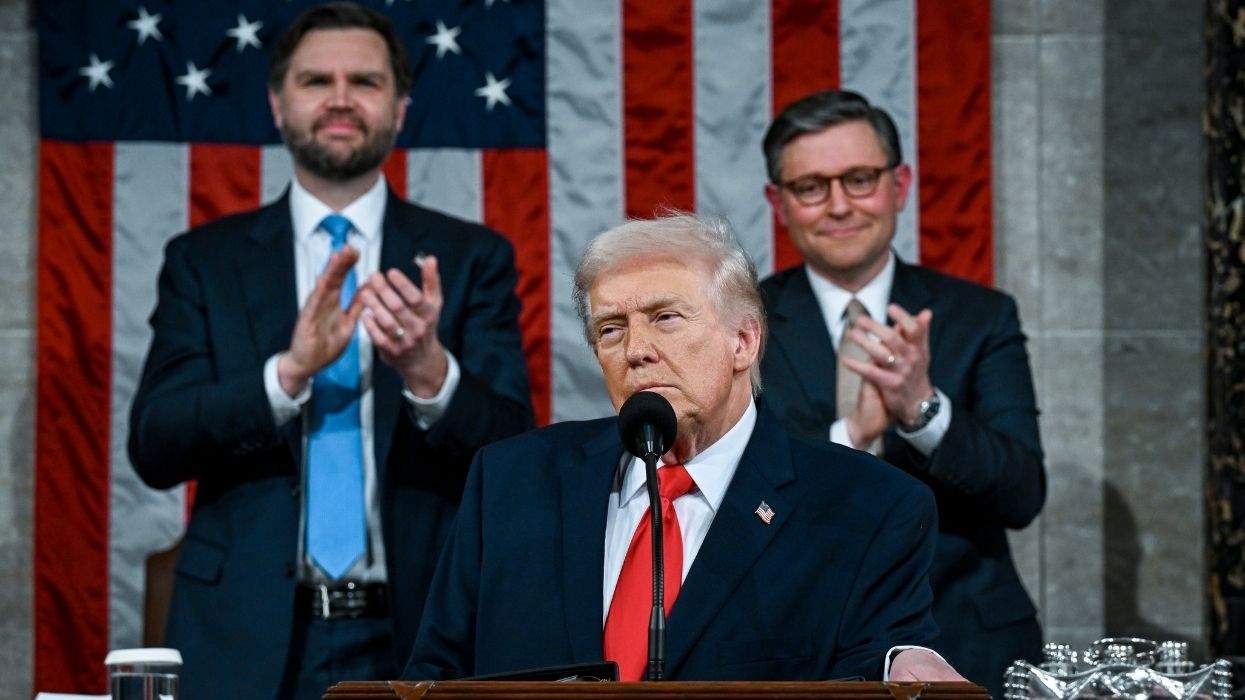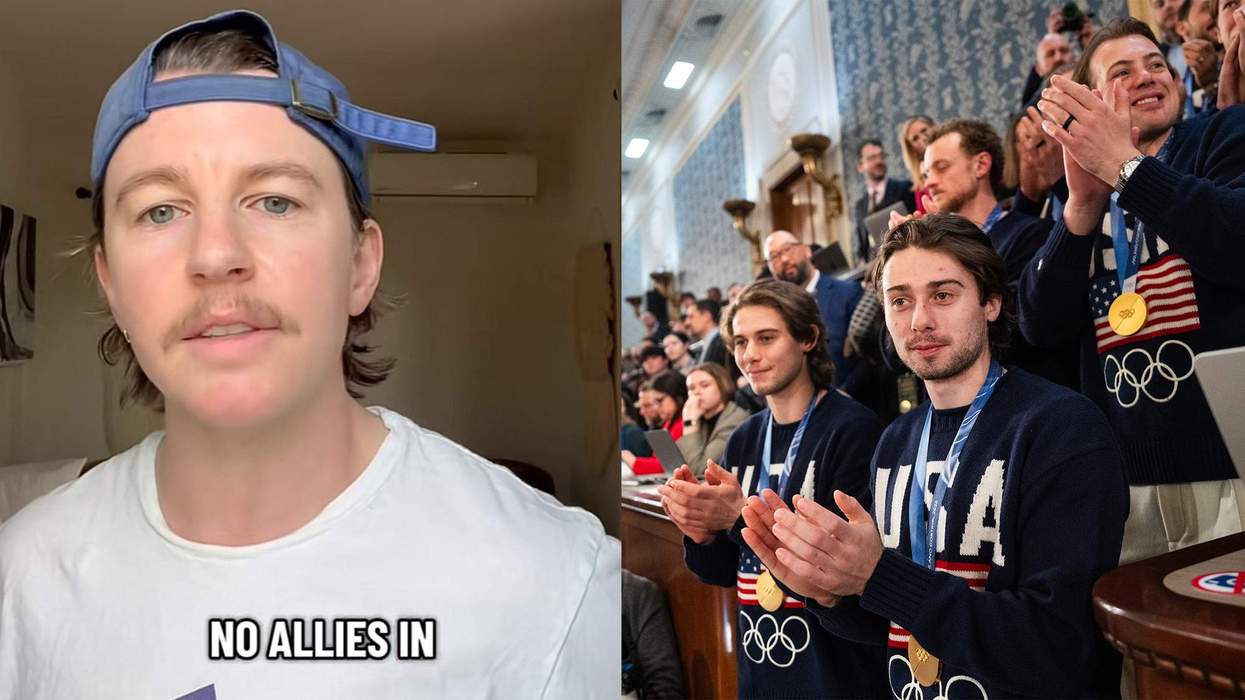In 2006, Virginia voters approved what many considered to be one of the most draconian modern-day measures against equality in a state constitution. The Virginia "marriage amendment" defined marriage as a union between a man and a woman, and prohibited the legal recognition of any marriage-like relationship, such as a civil union or domestic partnership, for gay or straight couples.
Nearly two years later the effects of the loss are still being felt viscerally, though perhaps not entirely in the way equality foes had planned.
"What I think we're finding now is a more organic involvement of gay and lesbian people with the Democratic Party and the Obama campaign," says Adam Ebbin of the Virginia house of delegates, the senior whip of the Democratic caucus, who in 2003 became the first openly gay person elected to the Virginia general assembly. "More and more gay people are involved if they participated against the marriage amendment."
While the marriage amendment may have brought defeat for equality in the immediate term, conversations with those on the front lines in Virginia suggest that the fight against it strengthened resources and visibility, each of which is now being channeled into the presidential election and could help to secure a pro-equality agenda in the state for years to come.
Though the battle appears to have left a deeper operational legacy on the Democratic Party, the wave of volunteering, canvassing, and fund-raising that rose against the marriage amendment in 2006 spanned across the ideological spectrum in the commonwealth.
"Because it was a specific issue, I saw lots and lots of conservatives and libertarians fund-raising and handing out literature you wouldn't normally see in the GLBT movement," says David Lampo, vice president and political director of the Log Cabin Republicans of Virginia. "In general, a lot stay away from the broader [gay rights] movement because they see it as an adjunct of the Democratic Party."
Perhaps for that very reason, Lampo says the 2006 involvement has largely not carried over to 2008 among gay and lesbian Republicans during the presidential election in this increasingly competitive swing state.
Their decreased participation notwithstanding, Lampo says most LGBT Republicans like McCain because he has mostly steered clear of identity politics. "I think there is a pretty high level of support [for him] in this election because gay and lesbian issues are virtually out of the debate," he says. "Even in a year when the head winds are against Republicans, there is still a sense that McCain is a different kind of Republican."
In contrast, Obama supporters like Charley Conrad, president of the Virginia Partisans Gay and Lesbian Democratic Club, see evidence of more gay-identified participation in the presidential contest, such as a fivefold increase in phone bank participation on GLBT nights at Obama headquarters in Arlington County near Washington, D.C.
"The Democratic Party is alive and well in Virginia," says Conrad, who believes that rising gay interest this year has more to do with the particular candidate than the marriage amendment aftermath.
"I don't think that the marriage amendment is having that effect on Obama's candidacy," he says. "I think it's the fact that we have a Democratic candidate that is appealing to everybody."
Other insiders say that the Obama momentum can best be understood in the larger context of the urbanization of northern Virginia, where gays and lesbians have a long political history compared to the more conservative southwestern and eastern portions of the state. The north is home to one third of the state's 7.6 million residents, and it is the base for all five of the state's openly gay elected officials, who are Democrats.
"The reason we're in the midst of the presidential mix this year is that we have a changing demographic," says Arlington County board member Jay Fisette, who became Virginia's first openly gay elected official in 1997. "This year the vote of the gay and lesbian community, especially in northern Virginia, is significant."
Since the 1970s the population of northern Virginia has been rapidly expanding, trending more affluent, diverse, and Democratic, although the state's nonpartisan voter registration makes the exact numbers elusive. Residents have moved beyond the city of Alexandria and Arlington County outside Washington, D.C., pushing westward and south into the suburbs and exurbs of Fairfax, Prince William, and Loudon counties.
That blue shift could prove pivotal to Virginia's vote in the presidential election, according to The Washington Post. It also holds positive implications for equality in the long run.
"The developments are good," says Virginia native Bob Witeck, CEO and cofounder of Witeck-Combs Communications, which tracks LGBT demographics. "They're much more Democratic now, and they're much more ethnically diverse."
During the marriage amendment battle, state and national Democratic stars such as Gov. Tim Kaine, former governor Mark Warner, and U.S. senator Jim Webb publicly opposed the initiative, providing invaluable support and visibility to the LGBT community and its allies.
"A number of leading Virginia politicians stood with us, at their potential political peril," says Delegate Ebbin, who represents Alexandria, Arlington, and Fairfax. "That was a defining campaign, to see who would stand with us."
Now with the popular Mark Warner positioned to capture the seat of retiring Republican U.S. senator John Warner, Democrats in Virginia could soon occupy the governorship, both U.S. Senate seats, and the majority of the state senate, with hopes to make a serious dent in Republican control of the house of delegates in 2009.
In addition to high-profile associations, gay Democrats made formal inroads after the marriage amendment, with the Virginia Partisans Gay and Lesbian Democratic Club named as a constituency group to the powerful Virginia Democratic State Central Committee.
"We have a seat at the table," says Conrad, the Virginia Partisans president. "People are more willing to talk about the issues."
Of course, many of the gains made since 2006 do hinge on progress that already had been under way before the marriage amendment. Some say the success of Equality Virginia, the statewide nonpartisan gay organization based in Richmond, helped to mitigate the severity of the ballot initiative loss, for one.
"A lot of that hard work preceded the constitutional amendment," says Jeff Trammell, who served as the liaison to gay voters for the Gore and Kerry presidential campaigns. "They got organized years ago, before the constitutional amendment, and built an infrastructure."
Trammell compares the 57% of voters that passed the marriage ban in Virginia with the 59% of voters who approved a similar ban in Wisconsin in 2006. Moreover, had a 60% threshold applied, like in Florida, where voters now are considering their own marriage ban, the initiative would have failed.
In many ways, Equality Virginia, which raised around $1.5 million to fight the amendment as part of the Commonwealth Coalition, exceeded expectations.
"I think the biggest thing that we were able to accomplish is that we were able to change the tone, and that shouldn't be underestimated in a state like Virginia," says Dyana Mason, executive director of Equality Virginia. "Our opponents were pretty confident and were predicting that they would win with 70% of the vote."
Mason adds that passing antigay legislation has become more difficult in the past few election cycles, and says that in the upcoming legislative session the priority will be to pass a bill to stop workplace discrimination for state employees. Such legislation would codify the executive order that originated with Governor Warner and was reinforced by Governor Kaine, who is not eligible for reelection in 2009.
As attention turns to statewide races in the months ahead, the outcome of the presidential election will likely impact the mood, just as the marriage amendment experience from 2006 helped set the tone of the present moment.
"I think that the psychological effect of winning Virginia for Obama is huge in terms of 2009," says Arlington County's Fisette. "And that, in turn, will do a lot in terms of practical, day-to-day and policy decisions in Virginia."
